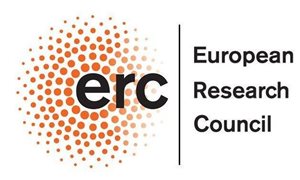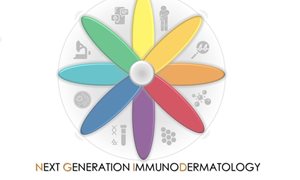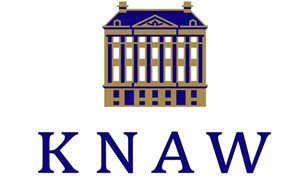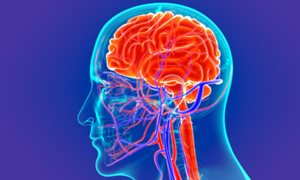
On Monday, May 9, a meeting took place at the Radboudumc as a result of the launch of the Dutch Transparency Agreement on Animal Testing. The Radboudumc is one of the twenty signatories and has thus committed itself to openly and transparently communicate its vision and policy with regard to animal testing. The attendees, signatories and other interested parties, discussed animal testing with each other. In the week of 9 to 13 May, several meetings were organized throughout the Netherlands.
As the Radboudumc, we want to lead the way in creating sustainable, innovative and affordable healthcare. Every day we strive for better care, research and education, every day we better understand how diseases arise, how we can prevent, treat and cure them. In short, we want to have a significant impact on healthcare: to be distinctive, together with and for the patient.
At present, animal experiments are still an indispensable part of biomedical research. They help us to develop knowledge about how people and animals function, and to learn more about how certain diseases arise and how they can be treated or cured.
When animal studies are conducted, they are done in a responsible manner. It is the ambition of the Radboudumc to lead the way in the development and application of techniques and models that lead to the use of fewer laboratory animals. This means that we strive for replacement, reduction and refinement, the so-called 3Rs. During each phase we examine whether a research question can be answered without test animals (replacement), with fewer test animals (reduction) or by reducing the discomfort (refinement).
National biobank
Judith Homberg, professor of translational neuroscience at the Radboudumc, kicked off the meeting. She studies behavior and cognition of animals in order to better understand the brain. This should enable us to develop treatments for brain diseases such as Alzheimer's or depression. 'There is rightly a lot of focus on reducing and replacing laboratory animals. We also want to see more attention paid to that third V, of refinement: making the living conditions of laboratory animals as comfortable as possible,' Homberg says. She also wants to establish a national biobank, so that researchers throughout the country can collaborate better and exchange information and tissues.
Developing brain organoids with stem cells
Next to speak was Radboudumc's Nael Nadif Kasri, professor of Medical Neuroscience for Neurodevelopmental Disorders. He studies brain disorders such as epilepsy and uses brain organoids, among other things: brain tissue cultured in the laboratory. The brain tissue is cultured using stem cells. He emphasizes that different research methods can coexist: 'Different methods, such as organoids and animal experiments, are complementary as far as I am concerned. They are not competitors. Answering the research question is central, not the method.'
After lectures by Liza Genzel from Radboud University and Otto Boerman, director of the Central Animal Laboratory, attendees were given a tour of the animal lab. Otto Boerman: 'We think it's important to explain why animal testing is still necessary and why it will be in the coming years. There are more and more innovations that we can use without using animals. If there is a method available for a research project that does not require animal testing, we make use of it. That's how it even says in the Animal Experiments Act. But if we want to take healthcare further, we cannot ignore animal testing now. It is important to have an open and transparent discussion about this.
About the Transparency Agreement on Animal Research
The goal of the Transparency Agreement is to create a more open and transparent climate regarding animal testing. The signatories of the Animal Experiments Transparency Agreement are: Amsterdam UMC, Biomedical Primate Research Centre, Charles River Laboratories Den Bosch B.V., Envigo RMS B.V., Erasmus University Medical Center, Brain Institute, Hubrecht Institute, Royal Netherlands Academy of Arts and Sciences, Leiden University, Leiden University Medical Center, Netherlands Institute of Ecology, Netherlands Cancer Institute, Radboudumc, Radboud University, University of Groningen, TNO, Maastricht University, Sportvisserij Nederland, Vrije Universiteit Amsterdam and Wageningen University & Research. Please visit the website of the Animal Testing Information Foundation for more information.
-
Want to know more about these subjects? Click on the buttons below for more news.
More information
Pauline Dekhuijzen

wetenschaps- en persvoorlichter
Related news items

Joint research in regional hospitals New research projects from promotion fund
22 November 2022Four research projects have been honored in the promotion fund of the Radboudumc and four regional hospitals. The research projects, which are a collaboration between CWZ, Jeroen Bosch Hospital, Rijnstate, Sint Maartenskliniek and the Radboudumc will receive a contribution of 240,000 euros.
go to page
European grants for groundbreaking Radboudumc research Professors Roshan Cools and Peter Friedl receive ERC Advanced Grant
26 April 2022The European Research Council (ERC) is awarding grants to Roshan Cools and Peter Friedl, both professors at Radboudumc. While Cools will investigate how brains control behaviour in (stressful) situations, Friedl will work on developing a new cancer therapy.
go to page
Large NWA ORC grant awarded for national skin research: Next Generation ImmunoDermatology
23 March 2022Research for better treatment methods for chronic skin diseases.
go to page

